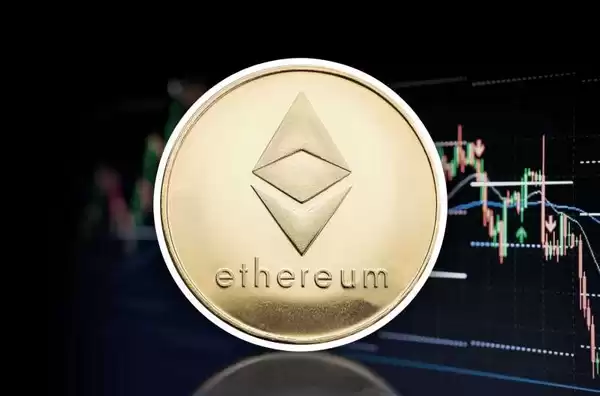-
 bitcoin
bitcoin $87959.907984 USD
1.34% -
 ethereum
ethereum $2920.497338 USD
3.04% -
 tether
tether $0.999775 USD
0.00% -
 xrp
xrp $2.237324 USD
8.12% -
 bnb
bnb $860.243768 USD
0.90% -
 solana
solana $138.089498 USD
5.43% -
 usd-coin
usd-coin $0.999807 USD
0.01% -
 tron
tron $0.272801 USD
-1.53% -
 dogecoin
dogecoin $0.150904 USD
2.96% -
 cardano
cardano $0.421635 USD
1.97% -
 hyperliquid
hyperliquid $32.152445 USD
2.23% -
 bitcoin-cash
bitcoin-cash $533.301069 USD
-1.94% -
 chainlink
chainlink $12.953417 USD
2.68% -
 unus-sed-leo
unus-sed-leo $9.535951 USD
0.73% -
 zcash
zcash $521.483386 USD
-2.87%
What is Ethereum smart contract
Ethereum smart contracts, autonomous and immutable programs stored on the blockchain, revolutionize trust, negotiation, and automation in various blockchain applications, from DeFi to supply chain management.
Nov 09, 2024 at 02:59 am

Ethereum Smart Contracts: A Comprehensive Guide
Ethereum smart contracts are self-executing programs stored on the Ethereum blockchain. They are autonomous, transparent, and immutable. Designed to reduce trust and simplify negotiations, smart contracts play a pivotal role in various blockchain applications.
Key Features of Ethereum Smart Contracts:- Autonomous Execution: Smart contracts are autonomous programs that execute automatically when predefined conditions are met. This eliminates the need for manual intervention and reduces the risk of human error.
- Transparency: All smart contract code is open and auditable. This promotes trust and transparency among participants.
- Immutability: Once deployed on the blockchain, smart contracts cannot be altered or removed. This ensures the integrity and security of the contract's execution.
Working Mechanism of Ethereum Smart Contracts
- Contract Creation: A smart contract is designed and coded in Solidity, a programming language specifically developed for Ethereum. It then goes through a compilation process to convert Solidity code into EVM bytecode understandable by the Ethereum Virtual Machine (EVM).
- Deployment: The compiled contract is deployed onto the Ethereum network, and a unique address is generated for it. This address serves as the contract's public identifier on the blockchain.
- Initialization: The deployment transaction typically includes an initialization function that sets up initial contract parameters and states. This function is executed only once during the contract's lifetime.
- Transaction Execution: Parties interact with smart contracts by sending transactions to their addresses. These transactions trigger the execution of functions defined within the contract code.
- State Update: If the transaction meets the conditions specified in the contract code, the contract's state may be updated. The new state is recorded on the blockchain and becomes accessible to all participants.
Benefits of Using Ethereum Smart Contracts
- Automation: Smart contracts automate various processes, reducing the need for intermediaries and manual effort. This saves time, costs, and reduces the risk of errors.
- Transparency and Trust: The open and auditable nature of smart contracts builds trust among parties, since all actions are recorded on the blockchain and visible to all.
- Enhanced Security: Smart contracts operate on the secure Ethereum blockchain, leveraging its decentralized architecture and consensus mechanisms to ensure data integrity and prevent unauthorized modifications.
- Reduced Costs: By eliminating the need for intermediaries and simplifying business processes, smart contracts can significantly reduce transaction and operating expenses.
- New Application Possibilities: Smart contracts enable the creation of innovative applications that were previously impossible or impractical with traditional systems. This opens up new possibilities for business models and industry transformations.
Common Use Cases of Ethereum Smart Contracts
- Digital Agreements: Smart contracts can be used to create legally binding agreements, such as contracts for sale, insurance policies, or loan agreements. These contracts execute automatically based on pre-defined terms, reducing the need for complex legal documentation.
- Decentralized Finance (DeFi): Smart contracts are the foundation of DeFi, allowing for the creation of decentralized financial instruments and services, such as lending, borrowing, stablecoins, and decentralized exchanges.
- Supply Chain Management: Smart contracts can track the provenance and movement of goods through supply chains, ensuring transparency and accountability. They can also automate payments, streamline logistics, and reduce fraud.
- Voting and Elections: Smart contracts can facilitate secure and transparent voting systems, allowing for the casting and counting of votes on the blockchain. This reduces the risk of election fraud and eliminates the need for centralized authorities.
- Gaming and Entertainment: Smart contracts can be used in gaming applications to manage in-game assets, distribute rewards, and enforce game rules. In the entertainment industry, smart contracts can automate royalty payments and provide new ways for content creators to monetize their work.
Top Smart Contract Development Platforms (Excluding FTX)
- Ethereum: Ethereum is the leading platform for smart contract development, with a vast ecosystem of tools, resources, and an active community.
- Binance Smart Chain (BSC): BSC offers a high-throughput alternative to Ethereum, with faster transaction speeds and lower gas fees.
- Solana: Solana is a high-performance blockchain that supports smart contracts with unparalleled scalability and low transaction costs.
- Polygon: Polygon is a layer-2 scaling solution for Ethereum, providing faster transactions and lower gas fees, while maintaining interoperability with the Ethereum ecosystem.
- Avalanche: Avalanche is another high-throughput blockchain that offers fast and low-cost transactions for smart contract applications.
Considerations for Developing Smart Contracts
- Security: Smart contracts should be thoroughly audited and tested to ensure they are secure against vulnerabilities and exploits.
- Cost Optimization: Developers should optimize smart contract code to minimize gas consumption and reduce transaction fees.
- Maintenance and Upgrades: Smart contracts should be designed with future maintenance and upgrades in mind, as code changes on the blockchain can be complex and costly.
- Legal and Regulatory Compliance: It is essential to consider the legal and regulatory implications of smart contracts, particularly in jurisdictions where digital agreements may not yet have clear legal standing.
- User Experience: Smart contract user interfaces and interactions should be designed with user-friendliness and simplicity in mind, ensuring a seamless and accessible experience for all participants.
Disclaimer:info@kdj.com
The information provided is not trading advice. kdj.com does not assume any responsibility for any investments made based on the information provided in this article. Cryptocurrencies are highly volatile and it is highly recommended that you invest with caution after thorough research!
If you believe that the content used on this website infringes your copyright, please contact us immediately (info@kdj.com) and we will delete it promptly.
- Ilocos Norte's Vibrant Festival Immortalized on New P100 Coin by BSP
- 2026-02-02 21:55:01
- LBank Elevates DeFi with GOLDEN FI (GLINK) Listing, Bridging Real-World Assets to the Blockchain
- 2026-02-02 21:30:02
- Beyond the HODL: Prediction Markets and Sports Betting Steal Bitcoin's Spotlight
- 2026-02-02 21:45:01
- Zama Lists on Multiple Exchanges, Airdrop Window Opens Amidst Strong Auction Performance
- 2026-02-02 19:05:01
- Bitcoin's Plunge Spurs Whale Activity Amidst Liquidity Crunch: A New York Take
- 2026-02-02 19:10:02
- Token Market Evolution: Digital Finance and RIV Files Usher in Era of Institutional Trust
- 2026-02-02 19:05:01
Related knowledge

How to close a crypto contract position manually or automatically?
Feb 01,2026 at 11:19pm
Manual Position Closure Process1. Log into the trading platform where the contract is active and navigate to the 'Positions' or 'Open Orders' tab. 2. ...

How to understand the impact of Bitcoin ETFs on crypto contracts?
Feb 01,2026 at 04:19pm
Bitcoin ETFs and Market Liquidity1. Bitcoin ETFs introduce institutional capital directly into the spot market, increasing order book depth and reduci...

How to trade DeFi contracts during the current liquidity surge?
Feb 01,2026 at 07:00am
Understanding Liquidity Dynamics in DeFi Protocols1. Liquidity surges in DeFi are often triggered by coordinated capital inflows from yield farming in...

How to use social trading to copy crypto contract experts?
Feb 02,2026 at 07:40am
Understanding Social Trading Platforms1. Social trading platforms integrate real-time market data with user interaction features, enabling traders to ...

How to trade micro-cap crypto contracts with high growth potential?
Feb 01,2026 at 02:20pm
Understanding Micro-Cap Crypto Contracts1. Micro-cap crypto contracts refer to derivative instruments tied to tokens with market capitalizations under...

How to optimize your workspace for professional crypto contract trading?
Feb 01,2026 at 08:20pm
Hardware Infrastructure Requirements1. High-frequency crypto contract trading demands ultra-low latency execution. A dedicated workstation with a mini...

How to close a crypto contract position manually or automatically?
Feb 01,2026 at 11:19pm
Manual Position Closure Process1. Log into the trading platform where the contract is active and navigate to the 'Positions' or 'Open Orders' tab. 2. ...

How to understand the impact of Bitcoin ETFs on crypto contracts?
Feb 01,2026 at 04:19pm
Bitcoin ETFs and Market Liquidity1. Bitcoin ETFs introduce institutional capital directly into the spot market, increasing order book depth and reduci...

How to trade DeFi contracts during the current liquidity surge?
Feb 01,2026 at 07:00am
Understanding Liquidity Dynamics in DeFi Protocols1. Liquidity surges in DeFi are often triggered by coordinated capital inflows from yield farming in...

How to use social trading to copy crypto contract experts?
Feb 02,2026 at 07:40am
Understanding Social Trading Platforms1. Social trading platforms integrate real-time market data with user interaction features, enabling traders to ...

How to trade micro-cap crypto contracts with high growth potential?
Feb 01,2026 at 02:20pm
Understanding Micro-Cap Crypto Contracts1. Micro-cap crypto contracts refer to derivative instruments tied to tokens with market capitalizations under...

How to optimize your workspace for professional crypto contract trading?
Feb 01,2026 at 08:20pm
Hardware Infrastructure Requirements1. High-frequency crypto contract trading demands ultra-low latency execution. A dedicated workstation with a mini...
See all articles










































































